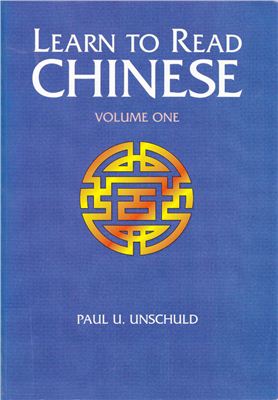Paradigm Pubns, 1994. - 444 pages.
These two volumes teach the language of contemporary Chinese technical literature. The subject matter is Chinese medicine, making these texts ideal for those who wish to lea Chinese from real-world sources. All 128 of the texts chosen are excerpted from the introduction to Chinese medicine written by Qin Bowei, one of the founders of TCM and a medical writer known for his clear, precise and detailed clinical expression. The work is thus a superb supplement for students of Chinese and an effective course of study for clinicians or scholars who wish to read Chinese technical periodicals, papers and texts.
The first volume teaches vocabulary. Each text is an exercise; readers transliterate, then translate a passage based on the simplified character vocabulary provided with each passage and its preceding passages. A completed transliteration in Pinyin and a finished English translation accompany the Chinese. The subject matter provides an exposure to authentic contemporary discussions of the fundamental principles of Chinese medicine.
The second volume teaches analysis of Chinese texts through the principles of Natural Language development. By showing how to identify the basic statement in a sentence and the adjunct statements that complete its meaning, just as children lea to read their native language, the reader is given access to Chinese texts as quickly as is possible. When the course is completed, users are working with typical mode Chinese medical sources.
These two volumes teach the language of contemporary Chinese technical literature. The subject matter is Chinese medicine, making these texts ideal for those who wish to lea Chinese from real-world sources. All 128 of the texts chosen are excerpted from the introduction to Chinese medicine written by Qin Bowei, one of the founders of TCM and a medical writer known for his clear, precise and detailed clinical expression. The work is thus a superb supplement for students of Chinese and an effective course of study for clinicians or scholars who wish to read Chinese technical periodicals, papers and texts.
The first volume teaches vocabulary. Each text is an exercise; readers transliterate, then translate a passage based on the simplified character vocabulary provided with each passage and its preceding passages. A completed transliteration in Pinyin and a finished English translation accompany the Chinese. The subject matter provides an exposure to authentic contemporary discussions of the fundamental principles of Chinese medicine.
The second volume teaches analysis of Chinese texts through the principles of Natural Language development. By showing how to identify the basic statement in a sentence and the adjunct statements that complete its meaning, just as children lea to read their native language, the reader is given access to Chinese texts as quickly as is possible. When the course is completed, users are working with typical mode Chinese medical sources.

